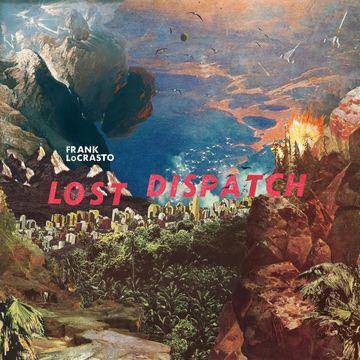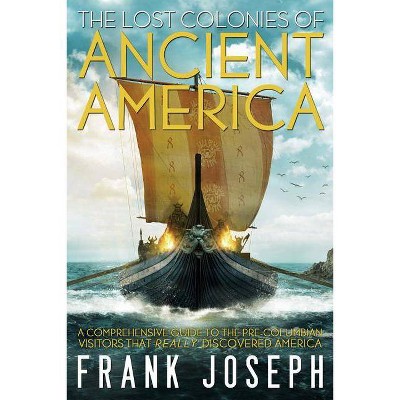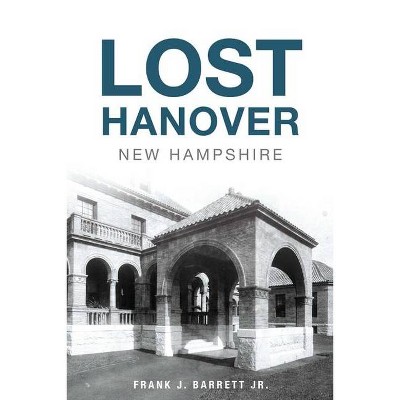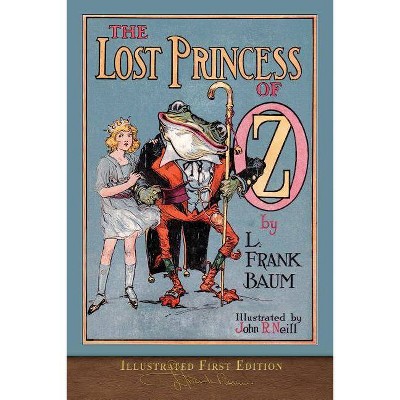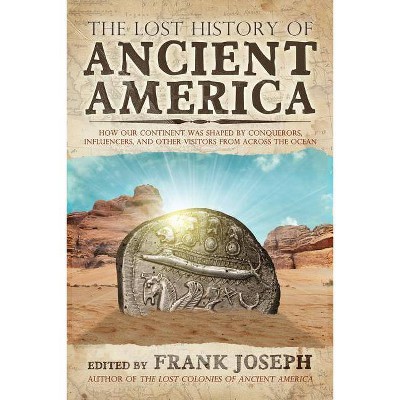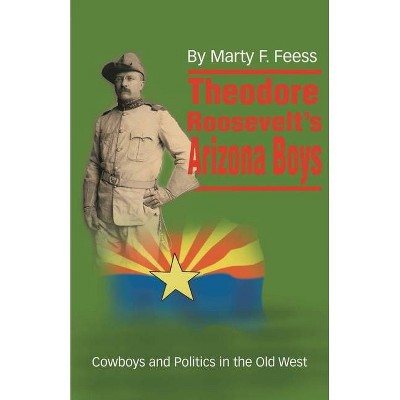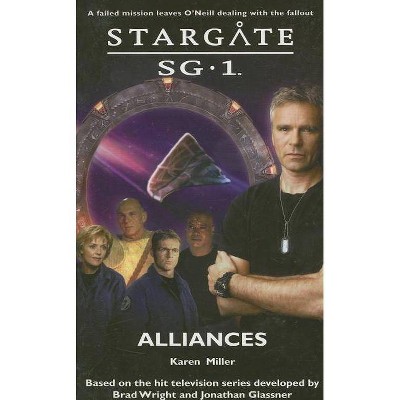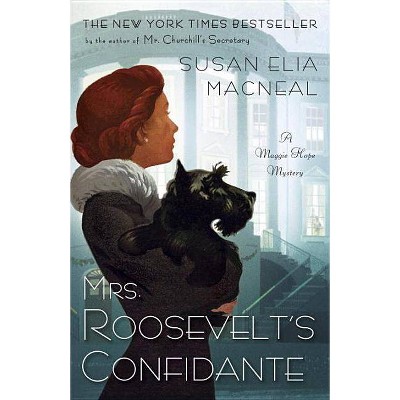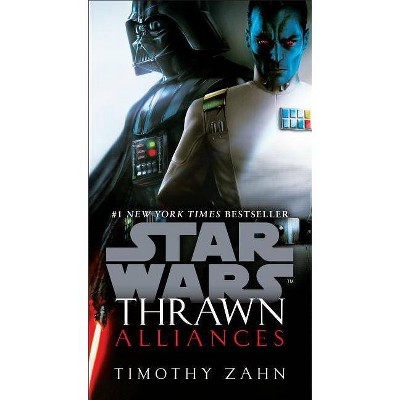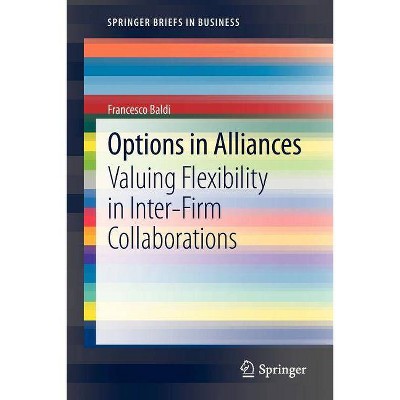Roosevelt's Lost Alliances - by Frank Costigliola (Paperback)
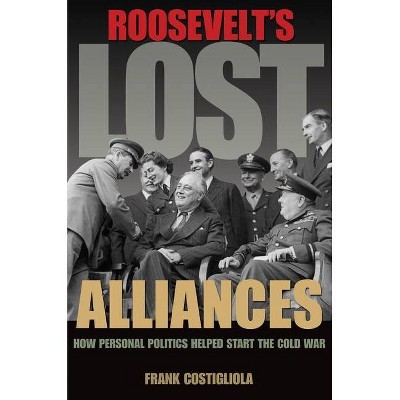
Similar Products
Products of same category from the store
AllProduct info
<p/><br></br><p><b> Book Synopsis </b></p></br></br><p><b>How the Grand Alliance of World War II succeeded</b>--<b>and then collapsed</b>--<b>because of personal politics</b> <p/>In the spring of 1945, as the Allied victory in Europe was approaching, the shape of the postwar world hinged on the personal politics and flawed personalities of Roosevelt, Churchill, and Stalin. <i>Roosevelt's Lost Alliances</i> captures this moment and shows how FDR crafted a winning coalition by overcoming the different habits, upbringings, sympathies, and past experiences of the three leaders. In particular, Roosevelt trained his famous charm on Stalin, lavishing respect on him, salving his insecurities, and rendering him more amenable to compromise on some matters. <p/>Yet, even as he pursued a lasting peace, FDR was alienating his own intimate circle of advisers and becoming dangerously isolated. After his death, postwar cooperation depended on Harry Truman, who, with very different sensibilities, heeded the embittered Soviet experts his predecessor had kept distant. A Grand Alliance was painstakingly built and carelessly lost. The Cold War was by no means inevitable. <p/>This landmark study brings to light key overlooked documents, such as the Yalta diary of Roosevelt's daughter Anna; the intimate letters of Roosevelt's de facto chief of staff, Missy LeHand; and the wiretap transcripts of estranged adviser Harry Hopkins. With a gripping narrative and subtle analysis, <i>Roosevelt's Lost Alliances</i> lays out a new approach to foreign relations history. Frank Costigliola highlights the interplay between national political interests and more contingent factors, such as the personalities of leaders and the culturally conditioned emotions forming their perceptions and driving their actions. Foreign relations flowed from personal politics--a lesson pertinent to historians, diplomats, and citizens alike.</p><p/><br></br><p><b> From the Back Cover </b></p></br></br><p>"This is a delightful and innovative book. Never before has any book on U.S. foreign relations provided such insightful character sketches. Scholars have long pondered why the best and the brightest went wrong, and now Costigliola offers an explanation: superpower tensions involved more than just misperceptions, divergent ideologies, and grand strategic differences. Personal rivalries, efforts to be in FDR's good graces, parties, and sex of all sort really had a bearing on diplomacy. Costigliola has written a novel masterpiece."<b>--Thomas W. Zeiler, University of Colorado at Boulder</b></p><p>"Costigliola pulls back the veil on the personal lives of the major figures of World War II. With great verve and captivating anecdotes, he shows how personal politics helped forge and disrupt international alliances. <i>Roosevelt's Lost Alliances</i> combines innovative research, provocative interpretations, and page-turning prose, providing a fresh take on how gender, emotion, class, and culture shaped the high politics of World War II and the Cold War."<b>--Emily S. Rosenberg, University of California, Irvine</b></p><p>"In this imaginative examination of the personal dynamics of the Big Three alliance during World War II, Frank Costigliola brings an important new and intriguing perspective to the origins of the Cold War."<b>--Ronald Steel, author of <i>Walter Lippmann and the American Century</i></b></p><p>"This is a terrific book. Fluidly written, cogently argued, and supported by superb research, it addresses a fundamental yet underexamined dimension of both the World War II Grand Alliance and the origins of the Cold War: the personalities as well as the personal relations of Churchill, Stalin, and Roosevelt."<b>--Richard H. Immerman, Temple University</b></p><p>"Costigliola has written an important and compelling book. His character portrayals of the three great wartime leaders are among the most incisive that have ever been written. He shows how critical Roosevelt was to the functioning of the alliance and how central his demise was to the origins of the Cold War. <i>Roosevelt's Lost Alliances</i> is a fantastically well researched, wonderfully evocative, stimulating, and significant book."<b>--Melvyn P. Leffler, University of Virginia</b></p><p>"A fascinating new history of a past we thought we knew very well already. <i>Roosevelt's Lost Alliances</i> represents a major intervention in the scholarship on World War II and the origins of the Cold War."<b>--Tim Borstelmann, University of Nebraska-Lincoln</b></p><p/><br></br><p><b> Review Quotes </b></p></br></br><br><i>Roosevelt's Lost Alliances</i> is an important and well-written book. Not because it recounts familiar events, but because it is able to examine the main figures from a new perspective and, by doing so, can demonstrate how important personal views, cultural differences, and mutual misunderstanding were in the onset of the Cold War.<b>---Eszterházy Károly College, <i>Hungarian Journal of English and American Studies</i></b><br><br>Among its many contributions, Costigliola's impressive book reminds us that the emotional truths of the earlier Cold Warriors' positions will be forever undermined by the costs and scars of the conflict they helped to set in motion.<b>---Hannah Gurman, <i>American Historical Review</i></b><br><br>Costigliola seeks to render a new, more Roosevelt-friendly judgment. Even those historians who will doubtless quibble with, or challenge, his conclusions will still find an enormous amount to enjoy and to stimulate them in this important book.<b>---Steven Casey, <i>War in History</i></b><br><br>Costigliola's insistence on exploring the private, human sides of public policy yields dividends. Utilising a wide range of new or underexploited archives, he brings out the personalities of the wartime Big Three.<b>---David Reynolds, <i>Diplomacy & Statecraft</i></b><br><br>Costigliola's is a brave thesis, premised upon many years of fine scholarship, that will enrich our understanding of this crucial period of history. It will provoke much debate and deserves to be widely read.<b>---Alan P. Dobson, <i>Historian</i></b><br><br>Costigliola's rich and incisive analysis will vastly deepen our understanding of the imponderables surrounding the perhaps most crucial phase of the twentieth century.<b>---Klaus Schwabe, <i>Diplomatic History</i></b><br><br>Even with 60 years of writing on the Cold War's origins behind us, <i>Roosevelt's Lost Alliances</i> can boast of a novel thesis.<b>---Jordan Michael Smith, <i>BostonGlobe.com</i></b><br><br>Every so often appears a new publication that demonstrates the complexities of the historian's craft and reminds professionals that their scholarly pursuits--no matter how evenhanded, rational, or seemingly definitive--must ultimately land somewhere between art and science. So is the case with Frank Costigliola's engaging and thought-provoking new study of 'personal politics.'<b>---Steven M. George, <i>49th Parallel</i></b><br><br>Honorable Mention for the 2012 Award for Best Professional/Scholarly Book in U.S. History, Association of American Publishers<br><br>In <i>Roosevelt's Lost Alliances</i> Costigliola deploys a finely tuned methodology to produce a learned and satisfying histoire totale of the inner workings of the Big Three wartime alliance and the reasons for its demise. He re-examines familiar material in the light of new questions and draws on previously ignored or under-utilized sources, of which the ones by women are especially important.<b>---Michaela Hoenicke Moore, <i>H-Diplo</i></b><br><br>This is a great read of war and politics at the very pinnacle of the Allied leadership pyramid that is both educational and surprising, engagingly crafted and well presented.<b>---Blaine Taylor, <i>Military Advisor</i></b><br><br>Winner of the 2013 Robert H. Ferrell Book Prize, Society for Historians of American Foreign Relations<br><br>As an exercise in wedge revisionism, Costigliola advances a powerful viewpoint, albeit one he might have couched with more shading and less certitude.-- "Newark Star-Ledger"<br><br>The premise that 'the Cold War was not inevitable' launches this penetrating, personality-focused exploration of its WWII roots and the late 20th century conflict whose aftershocks are still being felt today. Costigliola (<i>Awkward Dominion</i>) is deft in his characterization of the Big Three: Churchill--boyish, flamboyant, and thrilled by armed conflict; Stalin--a piercingly intelligent former seminarian capable of merciless brutality for the sake of a cause; and FDR--the fulcrum, a blue-blooded trickster willing both to humor Churchill's nude effusiveness as a guest in the White House and win at Yalta the honest admiration of the insecure Stalin. With all the trappings of a dramatic HBO series (sex, intrigue, hierarchy, and global and historical resonance) Costigliola dutifully traces the reasons Roosevelt's vision of three (or four) world policemen committed to global stability failed to win out in the post-war near-term.-- "Publishers Weekly"<br><br>This book offers a provocative psychological thesis on leadership and diplomacy that contributes to understanding the origins of the Cold War. It will appeal to scholars and general readers interested in the transition of the Allies from World War II to the Cold War. Highly recommended.-- "Library Journal"<br><br>This well-written work, based on extensive use of the private papers, personal correspondence, and published memoirs of the major participants, provides an interesting perspective on the wartime alliance and the origins of the Cold War, guaranteed to spark discussion.-- "Choice"<br><p/><br></br><p><b> About the Author </b></p></br></br><b>Frank Costigliola</b> is professor of history at the University of Connecticut and former president of the Society for Historians of American Foreign Relations. He is the author of <i>France and the United States</i> and <i>Awkward Dominion</i>.
Price History
Price Archive shows prices from various stores, lets you see history and find the cheapest. There is no actual sale on the website. For all support, inquiry and suggestion messages communication@pricearchive.us
